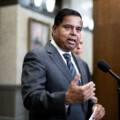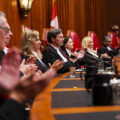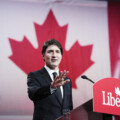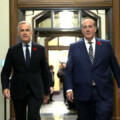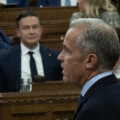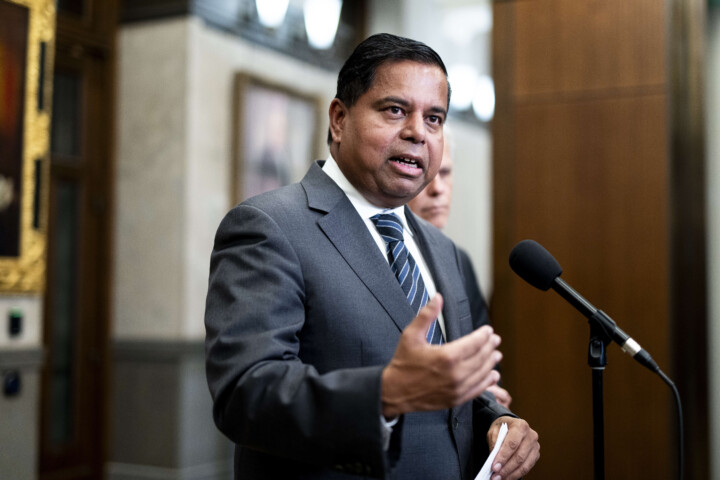In The Weekly Wrap Sean Speer, our editor-at-large, analyses for Hub subscribers the big stories shaping politics, policy, and the economy in the week that was.
Everything must be on the table to protect Canadian competitiveness
Although the Trump administration has yet to impose its much-anticipated tariffs on Canada, we shouldn’t assume that the president’s threat of “economic warfare” isn’t already underway.
The art of war isn’t just about direct attacks or invasions. It can take different forms, including psychological warfare—or psyops.
The issue of tariffs is a good example. The economic harm to Canada doesn’t depend on the actual imposition of tariffs. Even the threat itself is bound to have damaging effects. It creates heightened uncertainty for businesses and investors that’s likely to have the effect of essentially freezing capital in the short term and causing firms to rethink their binational distribution of production over the medium term.
I recently asked University of Calgary economist and regular Hub contributor Trevor Tombe about the effects of tariffs or the threat of tariffs on Canada’s economy. His response was while the longer-term effects were a bit more challenging to predict, “the more rapid response…[is] going to be business investment falling dramatically in Q1 due to the high level of uncertainty that this creates.”
The key point here is that Donald Trump’s capricious claims and evolving threats can impose real costs in and of themselves. One gets the sense that he and those around him understand this. There may in fact be a method to the madness.
It may also be about more than just paralysing Canadian business investment. According to report, we’re already starting to see firms revisit the distribution of their production between Canada and the United States.
As long as the threat of tariffs looms, one can envision other firms making similar calculations. They understand the new political realities in Washington as well as the cost differentials between the two countries. What makes this risk particularly acute is that the firms that opt to shift production back to the U.S. will want to make as much noise about it as possible—which creates a vicious cycle for Canada where the more firms talk about it, others will feel pressure to match them.
It reinforces that Canada’s position cannot be merely defensive. It’s not sufficient to lobby the Trump administration to forgo its tariffs. The threat of tariffs is damaging enough. Canadian policy must counteract the policy and political incentives tilting in favour of the U.S. This means fundamentally reshaping the cost competitiveness between the two countries.
And the only way to do that is to adopt a radical mindset. The Overton Window needs to be pulled wide open. Maybe Ottawa needs to get rid of corporate taxes. Maybe the provinces need to revamp their permitting regimes for major projects. Maybe we need to build nuclear plants across the country to produce abundant cheap and clean energy.
There are no doubt other (and perhaps better) ideas for policymakers to consider. But the key point is to understand that we’re facing acts of economic warfare and we need to be ready to compete or win in the name of protecting Canadians’ prosperity.
If we don’t, the giant sucking sound of investment, production, and jobs leaving for the U.S. will eventually become overwhelming.



